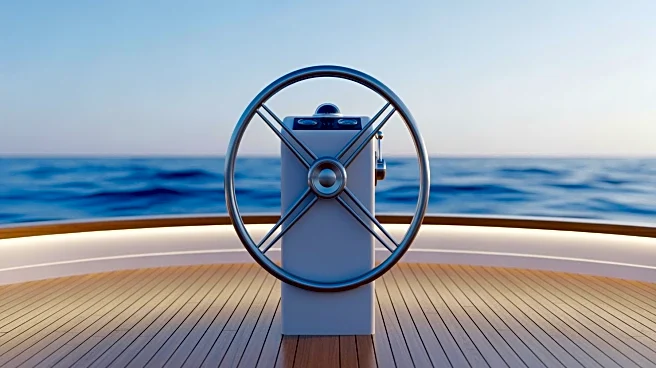What's Happening?
The Dutch Maritime Awards were presented on November 3, celebrating innovative contributions to the maritime sector. Five winners were selected from 15 nominees by a professional jury. The awards included the Maritime Ship of the Year Award, given to Royal
van Lent/Feadship for their superyacht Breakthrough, which features a hybrid diesel/hydrogen-electric system. Edwin de Hoog received the Maritime Talent Award for his research in optimizing sand-water transport in dredging pipelines. Breman Innovation won the Maritime Innovation Award for their remote-controlled lifting aid, Eye Catcher. Silvan Floor was honored with the Maritime Achievement Award for his innovative teaching methods, and Teun van Schriek received the Maritime Security Award for his research in submarine detection using AI.
Why It's Important?
These awards highlight the ongoing advancements and innovations within the maritime industry, showcasing efforts to improve sustainability, efficiency, and security. The recognition of hybrid propulsion systems and AI-driven security measures reflects the industry's commitment to addressing environmental challenges and enhancing operational capabilities. The awards also emphasize the importance of talent development and innovative teaching methods in nurturing future maritime professionals.
What's Next?
The awarded innovations are likely to influence future developments in the maritime sector, encouraging further research and adoption of sustainable technologies. The focus on hybrid systems and AI applications may lead to increased investment in these areas, driving advancements in maritime operations and security. The recognition of educational contributions may inspire other institutions to adopt similar approaches, fostering a new generation of skilled maritime professionals.
Beyond the Headlines
The emphasis on sustainability and security in the awards reflects broader trends in the maritime industry, where environmental concerns and geopolitical tensions are driving innovation. The integration of AI in maritime security could lead to new strategies for managing threats at sea, while hybrid propulsion systems may become standard in future vessel designs.
















